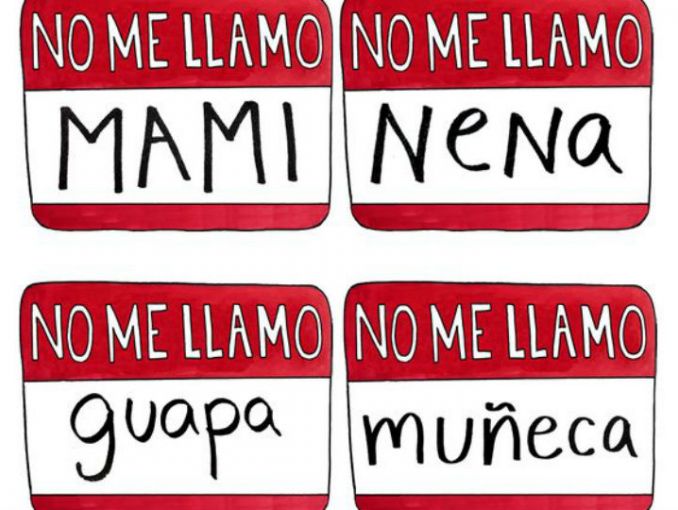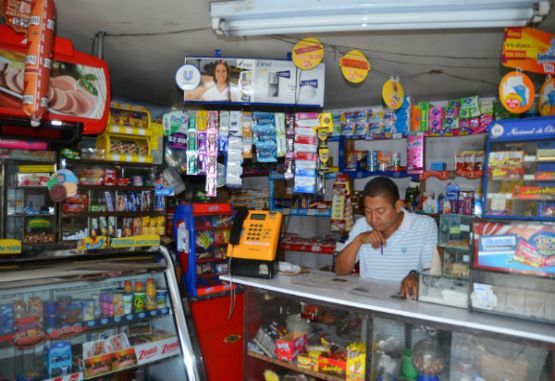I’ve been stumbling upon and rereading some writing projects that are (yes) mostly unfinished, but I’d like to take the time to share some of them and see if getting some feedback might motivate me to finish.
I feel like prefacing this project might be a good idea so that you get what I was going for.
A couple of years ago, my brother and I were talking about love stories and clichés. He gave me a unique challenge that I began to build upon and have added to here and there whenever I stumble across this piece of writing. It’s interesting, because I am a classic example of a writer that takes their own experiences and morphs them to try to tell a story of something (I hope) someone else might have experienced but that, naturally, does not 100% align with my own thoughts or experiences. It offers me a bit of perspective on my own experiences, while making my own writing feel more concrete without simply and narcissistically copy/pasting experiences from my own life — I have other mediums for that (*glares pointedly at Part 2 of my roadtrip post sitting in my draft folder*).
This project I decided would be bilingual. A love story of a different kind. The idea of two people meeting, not being able to understand each other, yet falling in love anyway. This hasn’t actually happened to me, but it has happened to a family member of mine, and I found the whole idea rather fascinating. I mean, how does one fall in love without understanding the other person? Seems like a pretty big stretch to me.
And so, naturally, writing about it would be the perfect avenue for exploring this concept which people apparently experience, but I have not.
However, as I said, this sort of project does borrow influences and experiences from my own life, allusions that people who know me well might recognize.
And it’s bilingual. I realized that it would cause an interesting marketing issue if I ever wrote a full book — because yes, there are a lot of bilingual readers out there (especially people that can read Spanish and English – yes, huge market win?) — but I would want people that don’t speak or read Spanish or English to find it accessible somehow as well (aside from reading the translations with mere context). (still not sure how I would accomplish this) But the whole idea is that, just as these two people could not fully understand one another, the pieces that they shared would be enough to craft this bigger picture. Yay, literary elements and whatnot.
While I catch up with other projects, I’m going to upload what I’ve written of this story in installments, since I’ve already completed around 4 chapters of the story. If it receives any response, maybe I’ll continue? Or if I get useful feedback, that could serve a source of inspiration.
I’m just curious, and I want to start sharing more of my fiction pursuits for peer review. Looking forward to seeing the response (if any!).
Cuando se acabó la gran noche, solo me quedé pensando. ¿Qué tal que fuera toda una gran casualidad? ¿Que tal que me quedara con ella? ¿Tendríamos una familia ahora en aquel apartamento tan moderno en aquella ciudad tan fría?
“Stay,” me dijo. Como de costumbre, me quedé mirándole los labios. Tan finos, hasta pintados de rojo. Pensé que al fin le entendía.
“Ya no. No se pudo,” le repliqué, y sus ojos no dejaban de mirarme a los míos.
Me prometía todo, sí, como no. Se dice que solo sabes lo que tienes cuando te toca perderlo. En mi caso, podría decir que eso es sólo la mitad del cuento. Y qué cuento más largo. Pero al final, la cama vacía habló por sí misma. Primero la suya. Después la mía.
Me marché.
Pero ¿cómo fue que empezó todo? ¿qué momentos tan pequeños se convirtieron en los que sé que me marcarán para el resto de mi vida?
Just like that, he was gone. I knew I would have to adjust again, to the quiet spaces in between. To the haunted melodies of the sad songs for lonely lovers we used to enjoy together. You see, I didn’t realize how much one could understand in spite of a language barrier. So much of what we communicate we do not say in words alone.
I never really knew what I wanted – to be. I could be one thing one day and a thousand things another. I wanted to be a writer. An actress. A politician. A teacher. A chef. Whatever it was in the moment, regardless of what the profession or fancy might be, I at least knew that I wanted to be great, by whatever definition of greatness I was willing to apply.
I knew I wanted to leave Arkansas. The endless fields of agriculture and livestock had nothing for me. I don’t even have a green thumb. Naturally, there was no better option for a young, indecisive dreamer than to pick up and move to Los Angeles and live a cliche like so many before me. Behind me, there were the winding country roads and broad plains, a life I was sure I would never miss.
Yo siempre me he sentido como una persona decidida, cuando no había camino, me lo abría, o sí o sí. Igual, nunca me imaginé que me iba a marchar de mi familia, de mi comunidad. Aún no supero el eco de su llanto, y los suplicos de mi niña: no se vaya, no se vaya, con Dios todo se puede.
Pero al final, me dejaron ir. Soltaron la correa. Porque su bien también depende del mio, y si uno no tiene milpa y no tiene palanca, conexiones para que uno salga adelante, pues se estanca. El peso de mis pasos fue como si me amarraran hierro a los zapatos. Pero seguía hacia adelante, hacia esa ciudad rodeada de montañas y la esperanza de una estatua verde, una mujer que abraza a cualquiera que aguante hambre, frío, desolación… El sueño americano.
Now you might think because I was raised in Fayetteville, Arkansas–big for a southern city with the same small town feel that seems ubiquitous in the Southern USA–that I had never seen things that could make any normal person’s skin crawl. That I wasn’t ready for skid row.
In reality, Arkansas is far from a idyllic paradise. For me it was more like a swamp hidden among old town charm. Kissing cousins were actual cases of incest and child molestation. A man resembling Pennywise the Clown sans makeup actually lived on my block and had a known reputation for watching and perhaps even trading child porn on the Dark Net. A known sex offender, he had the most uncanny way of looking through any person he met with his unworldly steel gaze. Most people were repelled, but nobody could deny a morbid curiosity. Nobody had ever tried to bust him, in spite of this common townsfolk knowledge of the things he must do in the dark confines of his brick prison. Whenever his sickly grey gaze landed on me as I waited for the school bus in the morning, I felt a convulsive shiver pass through me. I began to feel my heartbeat in my feet, and I suddenly forgot the layers of clothing I would wear on cold mornings as my limbs began to tremble. Still, he was also the little league coach’s assistant, and most people would never talk bad about him to his face.
Then there were the Mason’s. They had changed the face of Fayetteville. All of the small mom and pop shops they owned by the end of the first decade of the 2000’s. They stunk of old money and racism, slavery and lynchings. Few would admit it, but Mr. John Frederick Mason Jr. had been known to don the white hood and go out on night prowls. Again, everyone kept quiet, especially when he gave big donations at all of the ten or more main Christian churches in the town, each claiming to be the first or the closest to God. In reality, I was fairly certain God had shifted his gaze away from Fayetteville long ago.
And yet, you would think when I announced that I was moving to Los Angeles that I had just said I was going to have public orgies with a group of demonic familiars – while getting high and overdosing no less. Most would never dare to leave, for fear of what could be worse. But still, I have to admit that they were right to be skeptical about my rushed decision to take off. I was a lost sheep, free to wander until I got myself eaten by the first wolf I encountered. Sheep’s clothing not required.
Me lo propuse en un día de calor ardiente y persistente. Miraba por las tierras que ya no eran mías, que ya se adueñó de ellas el cartel, mientras plantaba la mano en la frente. Tanto sudor, todo para que me llegaran y me quitaran mi hogar. La frustración se sentía en cada rincón, susurros de qué pasaría con el nuevo presidente de Gringolandia, hechizos de las brujas y los brujos de la comunidad, que se colocaban siempre en la orilla de toda maldad.
Y me decidí. A pesar de todo, no me quedaba de otra.
I could keep living there, I admit. I had my college degree from the University of Arkansas, conveniently located in my hometown. I had a little bit of sway in the community, but not Mason level sway. Still, there was some hope for upward mobility, what with both of my parents being productive members of society. My mom worked in one of the local high schools and even had a position in the school board. My father, though not as noteworthy as he would like, had a financial firm and one of the most easily hated professions on earth. They both set the bar for a life of potential security, if not the old school power play of more influential families.
All the same, the day I left was an act of pure rebellion from a young woman that had never stopped being an adolescent. I felt a sort of pit in my stomach as I threw the majority of what I needed in the one big suitcase I had had for years and had never used. I left at midnight, thinking idealistically that if I drove all night, I might just see my first California sunrise peak over the mountains the next day. What I didn’t realize was that the road from Fayetteville to Los Angeles is over two days long, and the sun rises in the East and sets in the West. I had enough savings to sleep in my car that night and regret every decision I had made up to that point. Still, I convinced myself, rationalizing and reasoning all in one contradictory step, I was living the adventure of my dreams. Nobody could stop me. I was going home, where I belonged.
![Nómada [con] Rumbo](https://nomadaconrumbo.com/wp-content/uploads/2021/04/cropped-dsc07640.jpg)




